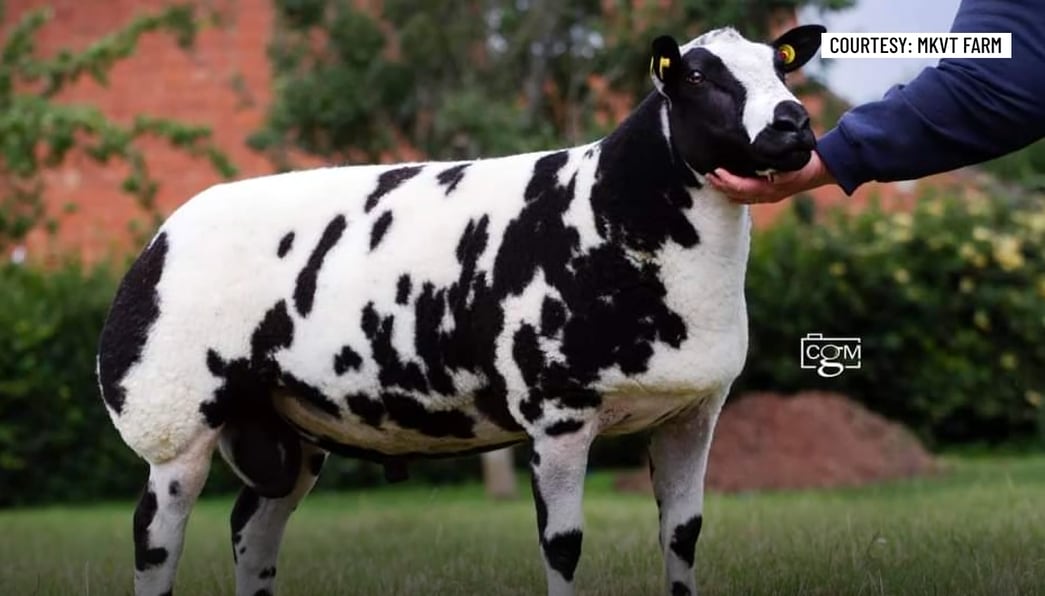
GLOVER, Vt. (WCAX) – Vermont has never seen the likes of Mark Rodgers’ sheep.
In a few months, Rodgers will be the first person in the Western Hemisphere with Dutch Spotted Sheep.
“It’s fun to be leading a charge on something that I think is going to have some long-term benefits to the entire sheep industry in the United States,” Rodgers said, surrounded by sheep at his MKVT Farm in Glover.
Native to the Netherlands, Dutch Spotted Sheep are known for their hardy build, strong maternal instincts, grazing thoroughly and fattening quickly, and their signature spotty coats. Up until 2022, it was illegal to import Dutch Spotted Sheep embryos in the United States. Rodgers is the first to do it, purchasing eight embryos for $1,100 from a breeder in Great Britain.
This December, Rodgers road-tripped with his sheep to Tufts University’s vet program. Doctors implanted Dutch Spotted Sheep embryos in eight surrogate sheep. Six weeks later, Hannah Mullen with Cold Hollow Veterinary Services did their ultrasounds, discovering a whopping seven pregnancies.
“First one, first two, I was getting pretty excited about it,” Mullen recalled with a smile. “And then to actually have seven out of eight is just absolutely unheard of, like I was shocked. So we were all absolutely thrilled.”
Rodgers says he couldn’t believe his luck.
“I just rode that wave right through the entire procedure,” Rodgers said. “You know, we all had smiles on our faces and frankly, couldn’t believe it.”
Mullen, who worked with Dutch Spotted Sheep in Ireland, says she believes the breed could transform Vermont agriculture.
“Sheep are an interesting way for agriculture, especially in a state like Vermont, to kind of stay present, to stay relevant,” Mullen said. “It’s an interesting way for people that don’t necessarily have the land or the capacity to have bigger animals to get into farming.”
With excellent grazing abilities and extra meat on their bones, Rodgers says Spotted Sheep could be more profitable than standard sheep and fill a hole left by declining dairy farms.
“I think they play an important part in revitalizing and adding some stability to Vermont agriculture,” Rodgers said.
Rodgers is already hearing from local farmers interested in buying his Spotted Sheep offspring. He says he’s excited to breed his flock, but for now his sights are set on their due date of May 5.
“We’re going to be looking for little black and white Spotted Sheep running around,” Rodgers laughed.







